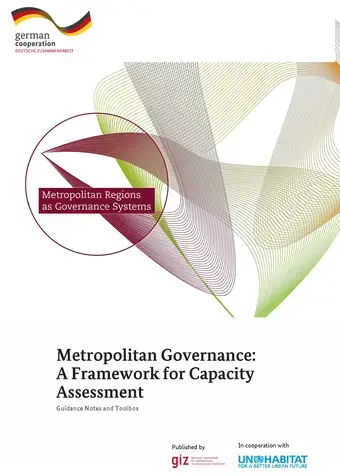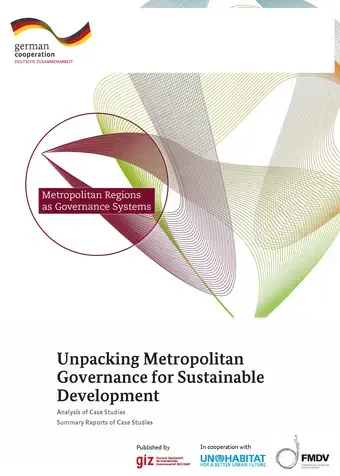Luisa Bravo in this lecture advocates for that public space in cities is a common good, meant to be open, inclusive and democratic – a right for everybody.
MP3
AUDIO: Luisa Bravo - Stand up for public space
SYNOPSIS
In 2018, the Global Compact on Safe, Orderly and Regular Migration (GCM) and the Global Compact for Refugees (GCR) were adopted by the vast majority of UN Member States.
During the preparatory processes for both Compacts, local authorities, among other stakeholders, were included and actively contributed to the global migration agenda. The Marrakech Mayoral Declaration (MMD, 2018) reaffirmed cities as key actors as they pledged to stand in solidarity, increase inter-city collaboration and play a critical role in shaping a more positive narrative on migration. Both Global Compacts acknowledged the importance of local authorities for shaping and implementation of these international commitments. However, while some local (city-level) authorities are successfully implementing innovative systems and approaches, others, who are also at the forefront of reception, basic service delivery, inclusion and rights protection of migrant populations, struggle and lack comprehensive guidance, resources, and capacity to move their work forward collectively.
The Center for Mediterranean Integration (CMI), the Organization for Economic Cooperation and Development (OECD), the United Nations Human Settlements Programme (UN-Habitat), the United Nations Children’s Fund (UNICEF), the United Nations Conference for Trade and Development (UNCTAD), the United Nations Education, Science and Culture Organization (UNESCO), and the World Health Organization (WHO) therefore worked together with the Mayors Mechanism of the GMFD (UCLG, MMC and IOM) to support local authorities in advancing the implementation of the Global Compacts.
The contributing organizations developed this guidance document in an attempt to:
The report highlights the experience of land readjustment in the Republic of Korea dating back to 1930. Learning from practice, training, and experience offers vital support to local and national governments, urban practitioners, and policymakers. Through the country's experience, physical, social, economic, and cultural parameters of land readjustment in similar contexts can be better understood.
The Governance Assessment Framework for Metropolitan, Territorial and Regional Management (GAF-MTR) and its two-step assessment tools present an analytical and practical vision of governance. They propose the understanding of governance as a complex process in which institutional solutions, decision-making and collective action must work together. Furthermore, the GAF-MTR defines governance factors that, when properly managed and improved, serve to enable and advance territorial management from supra-municipal scales.
The GAF-MTR draws from inspiring practices on the establishment of institutional and decision-making arrangements for territorial management at supra-municipal scales. Case studies include Valle de Aburrá in Colombia; San Salvador; Montreal in Canada; London; Barcelona in Spain; Bratislava; Johannesburg in South Africa; and Singapore. These examples show how to provide integrative territorial governance frameworks involving fit-for-purpose institutional solutions, representative decision-making processes and collective actions.
The GAF-MTR includes: i) The Metropolitan, Territorial and Regional Governance Assessment Tool; and ii) The Metropolitan, Territorial and Regional Governance Scorecard, as a two-step qualitative tool containing a series of criteria and guiding questions for assessing institutional, political and instrumental dimensions of territorial governance in metropolises and regions.
The GAF-MTR can be used by local, sub-national and national governments, metropolitan and regional authorities and, in general, any territorial actor interested in analysing, assessing and improving governance for sustainable and integrated territorial development. Although the framework is being applied first at metropolitan and regional levels, it can also be adapted to other geographical scales, and can be used for sectoral and thematic analyses related to policy, territorial and urban matters. Future publications will be developed in this regard.
Luisa Bravo in this lecture advocates for that public space in cities is a common good, meant to be open, inclusive and democratic – a right for everybody.
MP3
AUDIO: Luisa Bravo - Stand up for public space
SYNOPSIS
This lecture aims to introduce how cities can successfully introduce and harness levers to improve their competitiveness, facilitating firm and industry growth to create jobs, raise productivity and increase incomes.
MP3
AUDIO: Sameh Wahba - Competitive Cities for jobs and growth: What, Who and How
With mounting globalisation, sprawling city-to-city connections, and an increasing role in global governance, it is critical for city leaders to understand and strategically orient their networking activities to open up the horizons of urban policy. Michele Acuto from University College London addresses this in the following lecture.
MP3

UN-Habitat and GIZ have developed the Metropolitan Capacity Assessment Methodology (MetroCAM) as a joint contribution to implement urban sustainable development agendas and bring them to the metropolitan scale. It complements the Unpacking Metropolitan Governance series. With this modular toolbox, urban stakeholders are able to assess existing capacity in a metropolitan setting, future needs, and potential trigger points and finally identify options for change. By tackling a particular metropolitan challenge, the MetroCAM provides instruments and incentives for municipalities to cooperate beyond administrative boundaries.
The MetroCAM is also a process to foster dialogue and build consensus. The first part of the methodology illustrates the required initial steps for a successful assessment, covering aspects like the composition of the assessment team, finding consensus on the most pressing metropolitan challenge and sequencing activities based on resource and time constraints. The heart of the methodology comprises of 12 tools – a bouquet of options which can be selected regarding the specific needs and challenges. The methodology is primarily directed to local and regional governments’ representatives willing to drive the change and engages urban practitioners, metropolitan actors, researchers and development organisations.
 This metropolitan governance case study is part of a joint effort of GIZ and UN-Habitat and is complementing the global study “Unpacking Metropolitan Governance for Sustainable Development” (GIZ/ UN-Habitat, 2015).
This metropolitan governance case study is part of a joint effort of GIZ and UN-Habitat and is complementing the global study “Unpacking Metropolitan Governance for Sustainable Development” (GIZ/ UN-Habitat, 2015).
 This metropolitan governance case study is part of a joint effort of GIZ and UN-Habitat and is complementing the global study “Unpacking Metropolitan Governance for Sustainable Development” (GIZ/ UN-Habitat, 2015). Three selected case studies –
This metropolitan governance case study is part of a joint effort of GIZ and UN-Habitat and is complementing the global study “Unpacking Metropolitan Governance for Sustainable Development” (GIZ/ UN-Habitat, 2015). Three selected case studies –
 This metropolitan governance case study is part of a joint effort of GIZ and UN-Habitat and is complementing the global study “Unpacking Metropolitan Governance for Sustainable Development” (GIZ/ UN-Habitat, 2015).
This metropolitan governance case study is part of a joint effort of GIZ and UN-Habitat and is complementing the global study “Unpacking Metropolitan Governance for Sustainable Development” (GIZ/ UN-Habitat, 2015).

This case study analysis forms part of the publication series “Unpacking metropolitan governance” that documents experiences and gives hands-on approaches for stakeholders in the field of sustainable development of metropolitan regions. The analysis and the summary reports of the case studies of Metropolitan Bandung (Indonesia), Guadalajara Metropolitan Area (Mexico) and e-Thekwini (Durban, South Africa) are following the joint publication of the discussion paper “Unpacking Metropolitan Governance for Sustainable Development”, UN-Habitat, GIZ and FMDV encourage a critical and intensive discussion among policy makers and practitioners about the findings and recommendations offered by the discussion paper, case study reports, and analyses. The publication series shall serve as a reference point for the ongoing international discussion on transforming urbanization, implementing the Sustainable Development Goals at the local and metropolitan level and thereby contribute to the Habitat III debate.
In addition, GIZ and UN-Habitat have developed a Metropolitan Capacity Assessment Methodology as a modular toolbox to assess existing capacity in a metropolitan setting, future needs, and identify options for change.